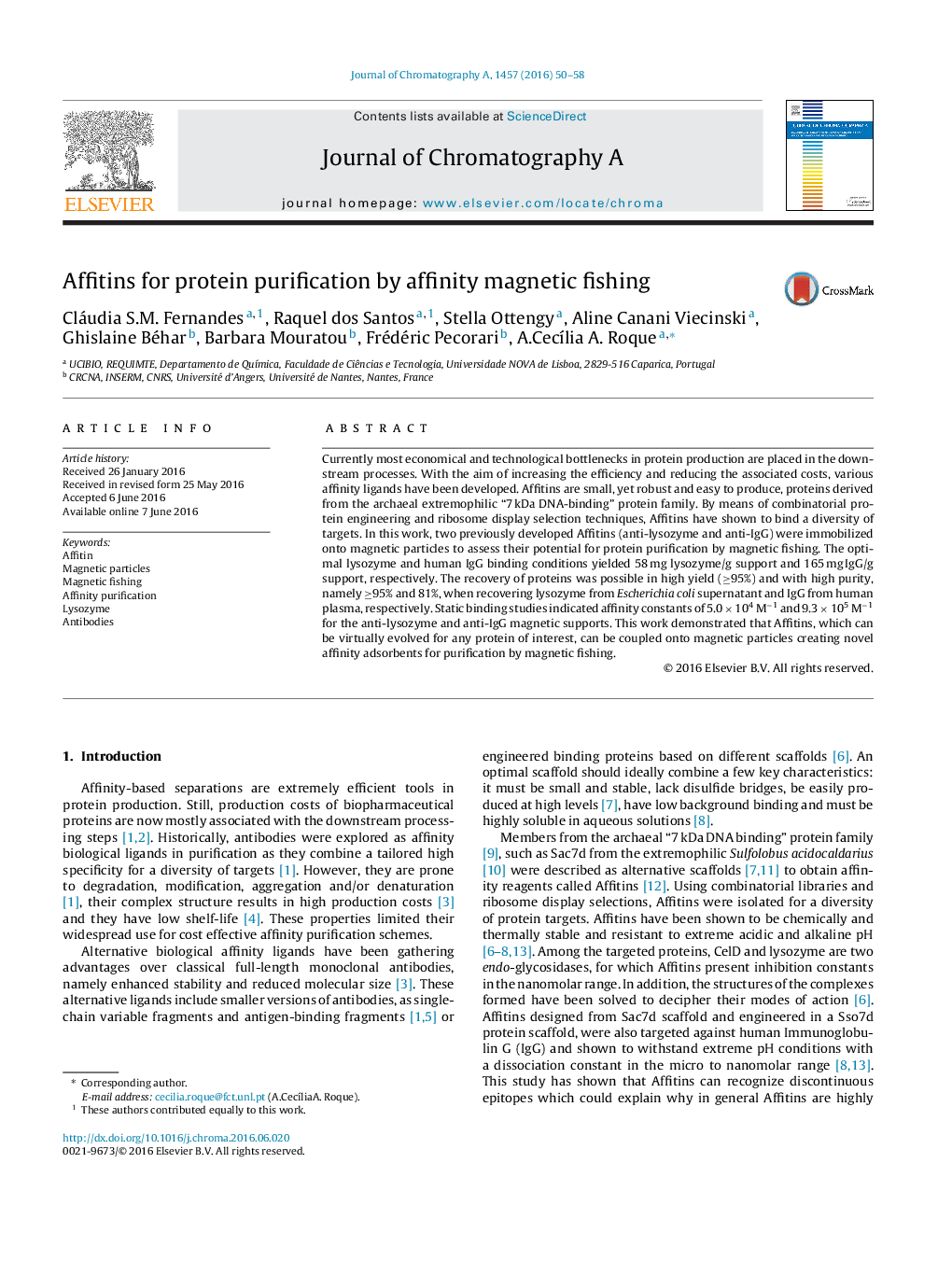| Article ID | Journal | Published Year | Pages | File Type |
|---|---|---|---|---|
| 1198660 | Journal of Chromatography A | 2016 | 9 Pages |
•First time successfully use of Affitins as ligands in a non-chromatographic support.•Protein purification with magnetic beads functionalized with Affitins.•Optimization of ligand immobilization, binding and elution conditions.•Lysozyme and IgG purification with high purity.
Currently most economical and technological bottlenecks in protein production are placed in the downstream processes. With the aim of increasing the efficiency and reducing the associated costs, various affinity ligands have been developed. Affitins are small, yet robust and easy to produce, proteins derived from the archaeal extremophilic “7 kDa DNA-binding” protein family. By means of combinatorial protein engineering and ribosome display selection techniques, Affitins have shown to bind a diversity of targets. In this work, two previously developed Affitins (anti-lysozyme and anti-IgG) were immobilized onto magnetic particles to assess their potential for protein purification by magnetic fishing. The optimal lysozyme and human IgG binding conditions yielded 58 mg lysozyme/g support and 165 mg IgG/g support, respectively. The recovery of proteins was possible in high yield (≥95%) and with high purity, namely ≥95% and 81%, when recovering lysozyme from Escherichia coli supernatant and IgG from human plasma, respectively. Static binding studies indicated affinity constants of 5.0 × 104 M−1 and 9.3 × 105 M−1 for the anti-lysozyme and anti-IgG magnetic supports. This work demonstrated that Affitins, which can be virtually evolved for any protein of interest, can be coupled onto magnetic particles creating novel affinity adsorbents for purification by magnetic fishing.
